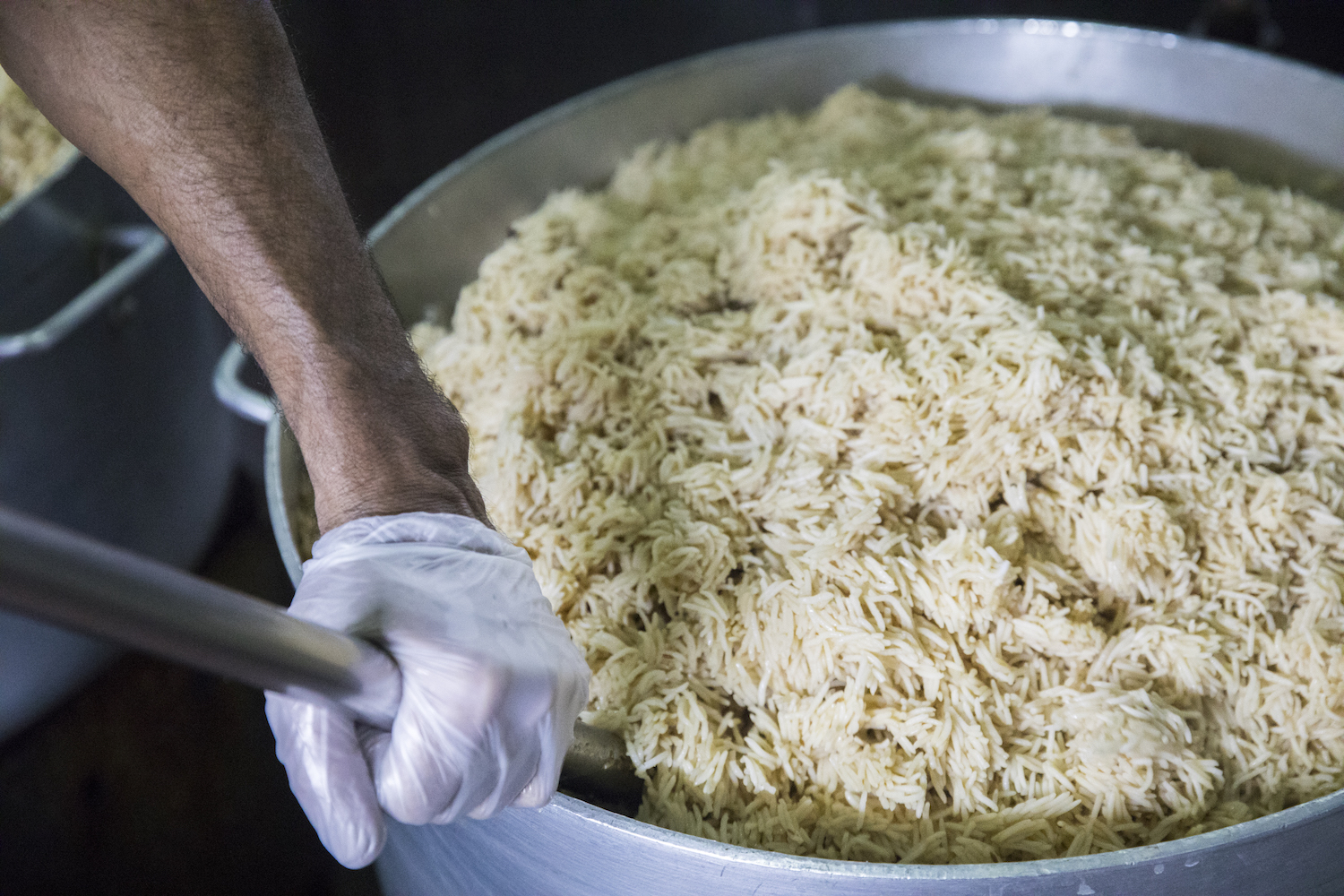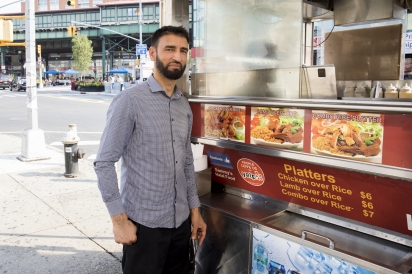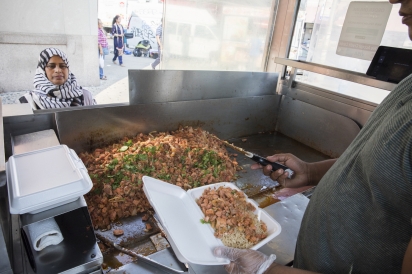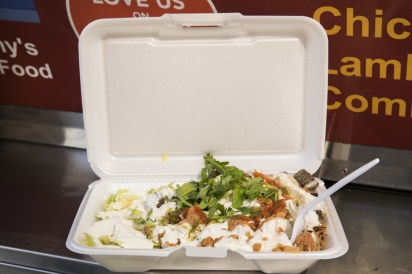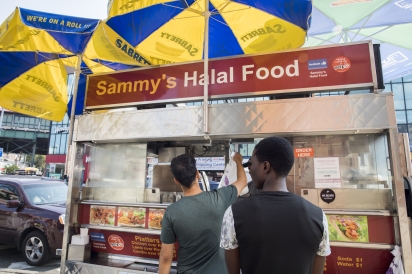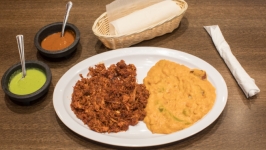A Day in the Life of a Street Cart Vendor: Sammy’s Halal Food goes the distance
"I was a nobody for many years,” says Samiul Noor, the owner of Sammy’s Halal Food carts. “Food is not an easy profession. Confidence actually saves you. And I’m still learning every day.”
An immigrant from Pakistan, Noor moved to the United States in 1990. After a few years in Texas, in 1997 he moved to New York City, where he purchased his first food cart in Jackson Heights for $15,000. As sole proprietor, Noor was responsible for every aspect of the business, resulting in 100-hour workweeks.
Things changed in 2006 when Noor won a Vendy Award, a prestigious New York City street food prize awarded by a panel of celebrity judges and attendees. The business became so successful that Noor hired employees and expanded to a second cart in Greenwich Village.
Every day at 5am, a Long Island City warehouse comes alive. In the warehouse are carts selling everything from halal chicken and rice to smoothies and Caribbean food. Some workers are busy loading their carts with supplies while others are cleaning theirs with a garden hose. Noor’s employees can be found in the large shared kitchen preparing rice and salad, items too cumbersome to prep on the carts.
One of Noor’s employees, Adnan Arif, is a Pakistani immigrant who commutes an hour every day from Kensington, Brooklyn, to the Manhattan cart for his 7am to 6pm shift. One of his first tasks is prepping the meat, which is cooked in batches to avoid having it dry out before service.
“The food has to be fresh,” says Arif as he dices up the cooked chicken thighs on the griddle before pushing them into a pile. The diced chicken is mixed with onions and cilantro, and is tinged light red from the spices, an original blend created by Noor. All the spice blends and sauces are his recipes.
Nothing is bought pre-made. And Noor’s menu is deceptively simple—chicken and lamb gyro on rice or pita, served with white, hot, barbecue or green chutney sauces, all typical selections for a halal food cart. Despite this simplicity, his food has a loyal following. In Jackson Heights, other halal food carts are parked nearby and serve a similar menu for a lower price. Yet people consistently line up for Noor’s offerings.
Around 7am, three white vans exit the warehouse, towing Noor’s food carts. Seating is sparse—the vans are packed with soda, ingredients and takeout containers. Two carts arrive in Jackson Heights, parking on the corner of Broadway and 73rd Street, in front of a Sterling National Bank. The extra cart at this location functions as a backup for large orders and service rushes. In Manhattan, a single cart arrives at 7:45am on 6th Avenue and Washington Place, a block from Washington Square Park.
These days, Noor no longer works in the cart. But he stays busy supervising orders coming through from online delivery apps like Postmates and UberEats. If the weather is hot, he sets up an extra umbrella attached to the cart for customers to stand under. He splits his time visiting the two locations during the week depending on where he’s needed, and now has business partners who often visit the Manhattan cart for him.
When Noor arrives at his carts with a cup of chai, he scarcely has time to drink it. People stop by constantly to talk to him. People like the Jackson Heights high school student who’s been a loyal customer since he was a small child, too short to see over the counter. Or the Chinese-American NYPD officer who frequents the Greenwich Village location, and always makes sure to ask about the cart worker’s day. Cab drivers park next to the cart, getting out to order before driving off. Bank workers in business suits line up next to women in hijabs and teenagers taking a break from a basketball game nearby, all waiting to order their favorite combination of meat, rice and sauces. Noor’s service is fast.
“My goal is to have the customers served in 30 seconds. This is fast food, after all,” says Noor.
Customers continue queuing after midnight. Both locations are open late, Greenwich Village until 4am and Jackson Heights until 6am.
Closing up is an efficient affair. The vendors work quickly, reattaching the carts and repacking supplies, ready to return to the warehouse and repeat this cycle, seven days a week.
The price of doing business is going up for street vendors and even established vendors like Noor are feeling the strain. Noor plans on raising his prices to compensate for the increasing cost of ingredients and worker wages. But he’s confident his customers won’t mind.
“It’s about quality and people have developed a taste for my food,” Noor says, smiling. “People grew up on my chicken and rice.”


